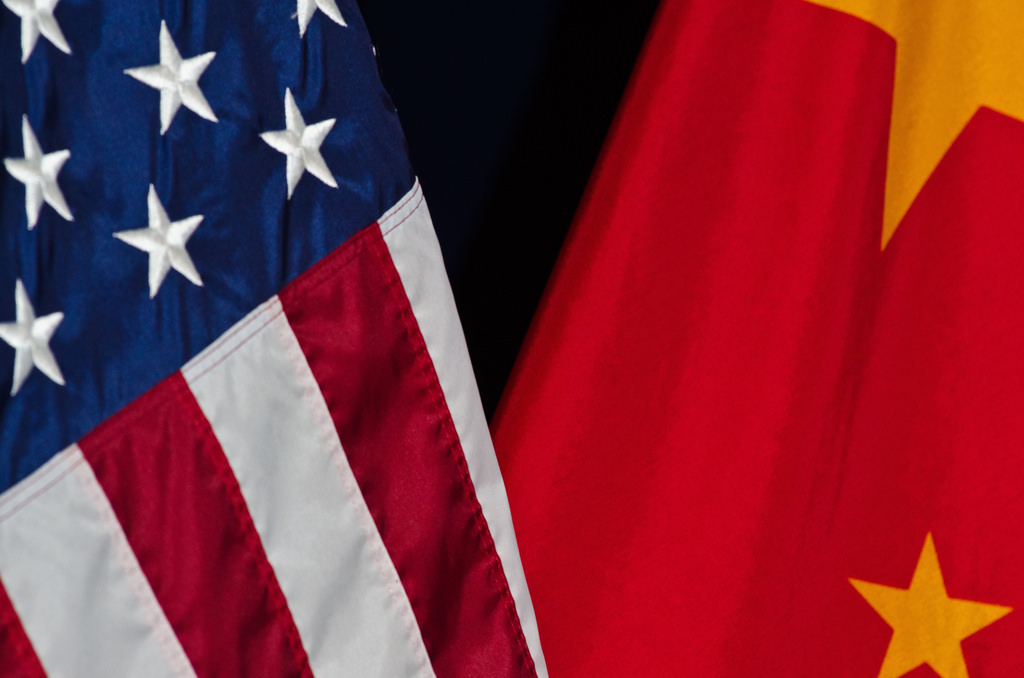Beijing strongly opposed President Donald Trump's plan to impose an additional 10% tariff on Chinese imports, accusing the U.S. of shifting blame over fentanyl and warning of retaliation. China’s Commerce Ministry emphasized the nation’s strict anti-drug policies and highlighted the potential disruption to global supply chains.
Trump announced the tariffs on Thursday, alongside a 25% duty on Canadian and Mexican goods set to take effect Tuesday. The new China tariffs follow a previous 10% levy on February 4 and coincide with China's annual parliamentary meetings, where key economic policies for 2025 will be outlined.
With less than a week to respond, Beijing condemned the unilateral move, stating that such tariffs violate World Trade Organization rules and damage global trade stability. "China has one of the world's strictest anti-drug policies," the ministry asserted, calling the U.S. decision an attempt to avoid responsibility rather than address domestic issues.
Despite rising tensions, analysts believe China still hopes for a trade agreement. However, with trade talks stalled and Washington signaling a broader economic decoupling, the prospect of reconciliation remains uncertain. "There’s been movement, but the Trump administration’s ultimate goal with China is unclear," said Christopher Beddor, deputy China research director at Gavekal Dragonomics.
China’s Commerce Ministry urged a return to negotiations, warning of countermeasures if the U.S. proceeds. Trump defended the tariffs, citing concerns over fentanyl, a synthetic opioid fueling the U.S. drug crisis. A White House official confirmed ongoing talks with China, Mexico, and Canada, noting progress on migration but lingering fentanyl concerns.
In response, China’s Public Security Ministry added 31 new precursor chemicals to control lists, reporting 151 cases of drug-making material seizures in the past year. However, it did not specify whether these were fentanyl-related.



 U.S. Lawmakers to Review Unredacted Jeffrey Epstein DOJ Files Starting Monday
U.S. Lawmakers to Review Unredacted Jeffrey Epstein DOJ Files Starting Monday  Trump Endorses Japan’s Sanae Takaichi Ahead of Crucial Election Amid Market and China Tensions
Trump Endorses Japan’s Sanae Takaichi Ahead of Crucial Election Amid Market and China Tensions  Ohio Man Indicted for Alleged Threat Against Vice President JD Vance, Faces Additional Federal Charges
Ohio Man Indicted for Alleged Threat Against Vice President JD Vance, Faces Additional Federal Charges  Trump Backs Nexstar–Tegna Merger Amid Shifting U.S. Media Landscape
Trump Backs Nexstar–Tegna Merger Amid Shifting U.S. Media Landscape  New York Legalizes Medical Aid in Dying for Terminally Ill Patients
New York Legalizes Medical Aid in Dying for Terminally Ill Patients  Netanyahu to Meet Trump in Washington as Iran Nuclear Talks Intensify
Netanyahu to Meet Trump in Washington as Iran Nuclear Talks Intensify  U.S.-India Trade Framework Signals Major Shift in Tariffs, Energy, and Supply Chains
U.S.-India Trade Framework Signals Major Shift in Tariffs, Energy, and Supply Chains  Trump Says “Very Good Talks” Underway on Russia-Ukraine War as Peace Efforts Continue
Trump Says “Very Good Talks” Underway on Russia-Ukraine War as Peace Efforts Continue  Trump Signs “America First Arms Transfer Strategy” to Prioritize U.S. Weapons Sales
Trump Signs “America First Arms Transfer Strategy” to Prioritize U.S. Weapons Sales  U.S. to Begin Paying UN Dues as Financial Crisis Spurs Push for Reforms
U.S. to Begin Paying UN Dues as Financial Crisis Spurs Push for Reforms  U.S. Announces Additional $6 Million in Humanitarian Aid to Cuba Amid Oil Sanctions and Fuel Shortages
U.S. Announces Additional $6 Million in Humanitarian Aid to Cuba Amid Oil Sanctions and Fuel Shortages  Missouri Judge Dismisses Lawsuit Challenging Starbucks’ Diversity and Inclusion Policies
Missouri Judge Dismisses Lawsuit Challenging Starbucks’ Diversity and Inclusion Policies  Trump Signs Executive Order Threatening 25% Tariffs on Countries Trading With Iran
Trump Signs Executive Order Threatening 25% Tariffs on Countries Trading With Iran  Japan Election 2026: Sanae Takaichi Poised for Landslide Win Despite Record Snowfall
Japan Election 2026: Sanae Takaichi Poised for Landslide Win Despite Record Snowfall  Trump’s Inflation Claims Clash With Voters’ Cost-of-Living Reality
Trump’s Inflation Claims Clash With Voters’ Cost-of-Living Reality  Pentagon Ends Military Education Programs With Harvard University
Pentagon Ends Military Education Programs With Harvard University  Jack Lang Resigns as Head of Arab World Institute Amid Epstein Controversy
Jack Lang Resigns as Head of Arab World Institute Amid Epstein Controversy 































